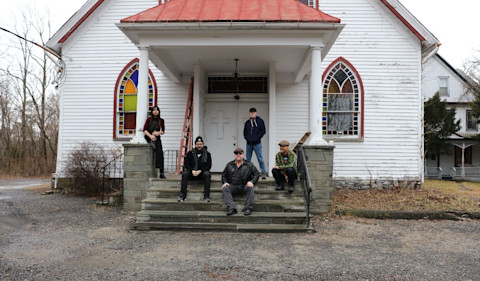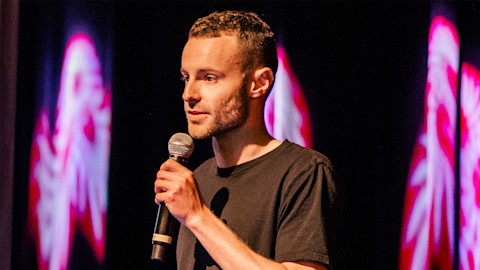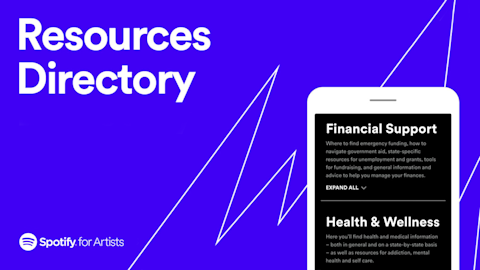The Brooklyn rockers used a month-long engagement to connect with the most fans—and to continually experiment and improve.
Neo-psychedelic rockers Garcia Peoples (named in homage to the Grateful Dead's late founding member) moved further into the art of the epic jam on their latest album, One Step Behind, most of which is committed to a title track that falls just short of 32 minutes. With improvisation at their core, playing live is deeply important to the New Jersey-spawned, Brooklyn-based group. Their October 2019 engagement at NYC club Nublu, which included their album-release show, offers a great example of how a residency can benefit a band. A residency can mean lots of things—anything from a handful of shows over a few weeks to hundreds of shows over multiple years—but the essential components are: one artist or band performing repeatedly at one venue. Garcia Peoples guitarist Danny Arakaki gave us the lowdown on what it's like for a rising rock band to bounce their sounds off the same set of walls for weeks, and how to make the most of the opportunity.
Spotify for Artists: How did your Nublu residency come about?
Danny Arakaki: We had met the promoter; he runs this company called Thunder Shout and his name is Chris Tart. He asked us to play, and our label and our manager linked up with him and set it all up for us. Chris had gone to a couple of our shows beforehand; he had heard about us, and we got to meet him beforehand, so it was cool—everything was friendly.
What was the experience like for you?
This was new for us. No repeats [of songs] was our thing [for these shows], so that would pretty much guarantee that our jamming between all these different songs was gonna be totally different. We got to play a Halloween gig at our last one, so we did all kinds of covers. We did a Dead Moon cover, Fairport Convention… and in between those cover songs it was all improv. A ton of people were out just celebrating—a good vibe.
Do you feel like the Nublu shows helped the band?
Yeah, definitely. Getting to play that frequently in the same place once a week is very helpful. You get different people who couldn't make it the week before; it pretty much guarantees that everyone who wants to see us there gets to see us at least once. That's super-helpful for us. Especially because our live thing is very different from our records.
How did the residency affect the music?
We're working on a new record…. Between each song we're like, "Maybe this could use a jam that would blend the two songs together." And also, when we're jamming—we get a lot of tapers at our shows, so we can listen back, [and] sometimes listening back, some things pop and you're like, "Oh we should use that." So when we get together for practice or making a record or something, that sort of stays with us, and we work on it more.
How big a part of your music is jamming now?
At this point probably about 50 percent of what we do is jamming. We've gone from playing just the songs live to jamming them out, so now our sets have gone from playing nine songs in an hour to playing four songs in an hour. It's very free, the way we jam, whatever way it comes out is just what's born of that moment. We just latch onto an idea—we go with the flow.
Bob Malach, renowned jazz saxophonist and father of Garcia Peoples' Tom Malach, plays on your new album, but he also came and played during your residency, right?
Yeah, for our record release. We pretty much just played that whole [title] track—I think it came out to like 50 minutes. That was the first time we ever played with him [live]. We didn't even get a rehearsal for it—it was fun! It was just crazy for all of us—that was something new. Playing this [piece] and seeing how different it was compared to what he played in the studio was a very cool experience. I had a lot of fun, and the audience really reacted to it in a positive way.
Had you done any other residencies before Nublu?
We had one other residency, at this place called Wonders of Nature [now closed] in Williamsburg [in Brooklyn]. That one was really cool. It was pretty much the first time a lot of people actually came out to shows and heard what we sounded like at that point. We had just finished recording both the first [two] records, so it was all pretty exciting. This was June of 2018, every Sunday.
That was a very small, intimate venue. How did that affect things?
It was all pretty new to us; that's when we started doing this whole jam thing and taking songs far out. So it was very cool for us to do it for an audience that small and that close to us. Super positive effect—you get to talk to people after, and everyone was positive and feeling good about it. That's the way we pretty much built up a community both with the audience and with the artists who played [on the bills] with us.
What would you say to a band that's thinking about trying a residency?
I'd say it's a good thing to do. They should keep their heads up about it, and if turnouts aren't [good], it's not always about the turnout. You should go in there thinking artistically. Change up the sets and have fun with it. That's what our audience, at least, goes for—something new, something they haven't heard from us before. That's the exciting part, and seeing how people react to that is special. So they should definitely go and take it as far out as they can every [show] and try to up their game every [show]—try to outplay themselves. Especially if there's tapers out there and you can listen back to a show. You can only get better doing that.
—Jim Allen
Popular Stories
video
How Julia Wolf Made It




